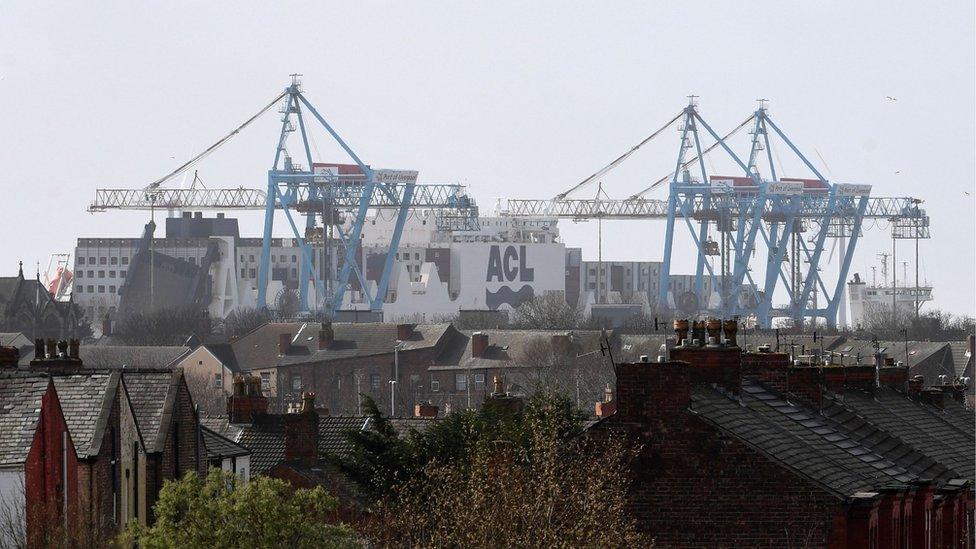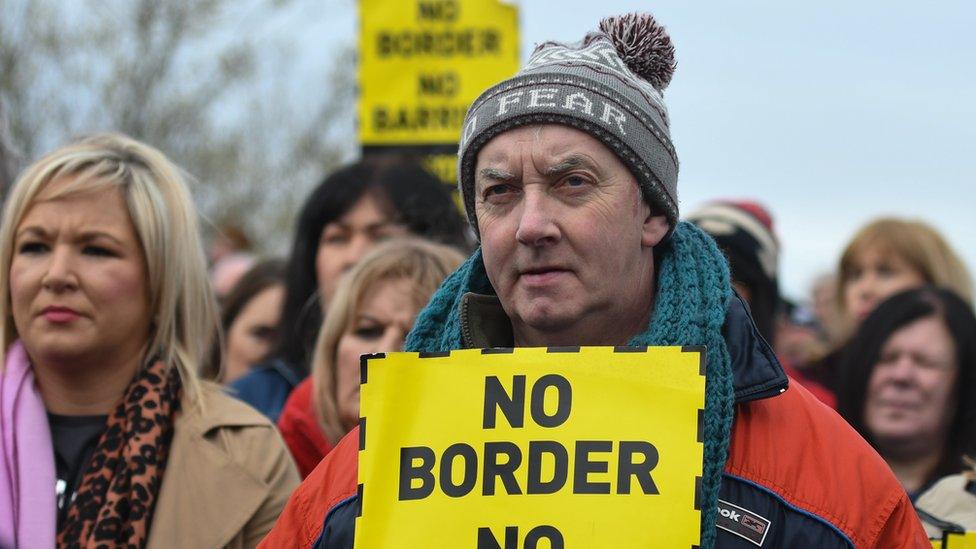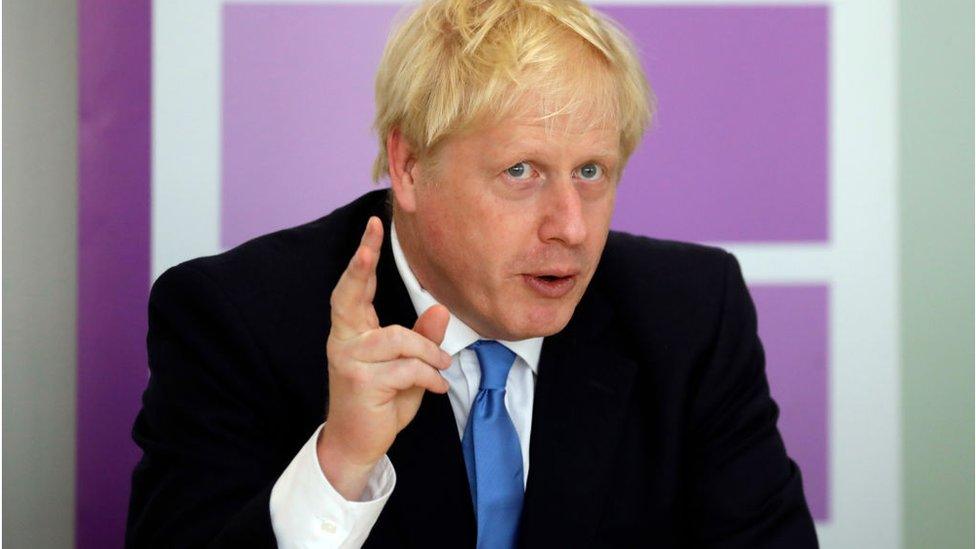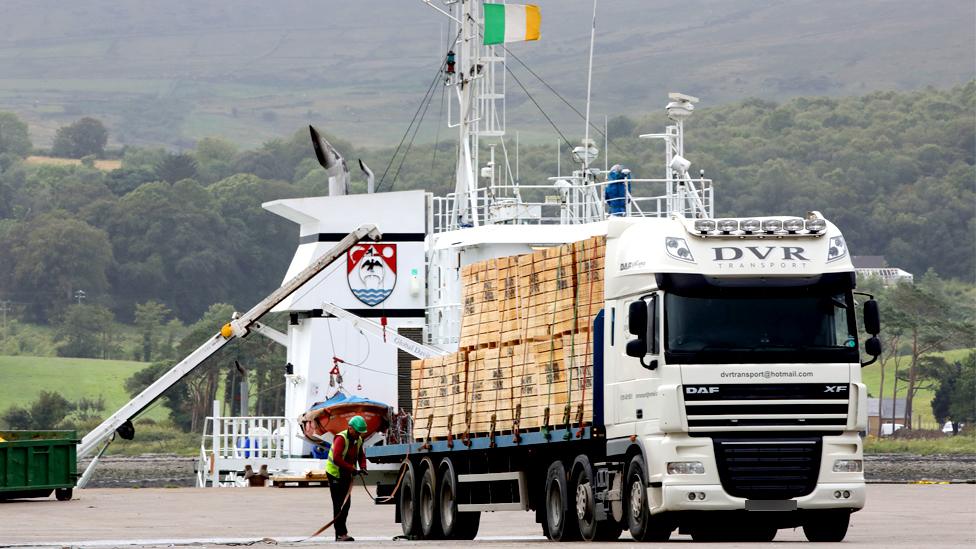UK ports 'preparing to host EU customs checks'
- Published

The shipping industry is drawing up plans for EU border checks in Britain for trade bound for Northern Ireland.
The BBC has learned that freight could be diverted through ports with space for inspections such as Liverpool and Stranraer, despite the government denying checks will be necessary.
Customs staff at the relevant ports could include EU representatives, under the details of the new withdrawal deal.
The government said it has secured a "great new deal."
There is also a proposal for smaller "pop up labs" at ports - mobile testing labs for health checks on food exports.
There has been at least one meeting this month between officials and shippers to discuss suitable ports.

One key issue is the diversion of freight to ports with enough capacity to process the freight traffic and carry out the necessary checks required by the Brexit deal.
The Port of Liverpool has an existing Border Inspection Point for exports outside of the EU. Stranraer could be used to process checks for ships using the nearby Cairnryan port, which has limited space.
Industry figures spoke to the BBC after leaks from within Whitehall clearly listed "facilities for high levels of checks and controls" as one of "a number of challenges" with delivering the PM's Brexit deal by December 2020.
Despite claims by Boris Johnson that there will not be any checks on trade from Great Britain to Northern Ireland, the industry is planning for them on the basis of the detail of the deal secured with the EU in October.
One senior industry figure said that there was an "implicit understanding" that such checks for food products would be in Great Britain, partly because of sensitivities about new infrastructure representing a form of trade barrier within the UK.
The BBC also understands that EU officials suggested that the checks should be in Great Britain, to avoid having to send back foodstuffs not compliant with EU single market rules.
The precise nature of the border checks depends on how aligned the UK remains with the EU, the decisions of the Joint Committee of the EU and the UK to be set up after Brexit, and whether UK authorities are willing to accept security and revenue risks in order to keep trade flowing. Technology could also help alleviate some of the checks.

On Sunday the prime minister said there was "no question" NI/GB checks
Paperwork and some checks will be required for agrifood imports into Northern Ireland from Great Britain, on the regulatory compliance of goods with the single market, and for trade tariffs for goods deemed to be at risk of being taken to the Republic of Ireland.
Goods remaining in Northern Ireland should have their tariffs repaid by the UK government, but a system for this is yet to be implemented.
The prime minister has also argued that only goods destined for the EU would face checks, but the industry says even verifying that would mean checking some intra-UK trade.
Both the leaked memo from DExEU - the Department for Exiting the European Union - and a similar Treasury note last week confirm scepticism that the necessary changes to infrastructure are possible within the PM's self-imposed deadline of December 2020.
The leaked DExEU memo suggests that work would have to start before negotiations on a future deal finish.
"The Prime Minister has been clear that the great new deal he has struck will not introduce new checks between Northern Ireland and Great Britain," the Conservative Party said in an email.
"We have struck a great new deal which will take the whole UK - including Northern Ireland - out of the EU and the EU's Customs Union. As we leave we will strengthen our union and ensure all parts of our country benefit from the opportunities that Brexit offers."

CONFUSED? Our simple election guide, external
MANIFESTO GUIDE: Who should I vote for?, external
POSTCODE SEARCH: Find your local candidates, external

- Published9 December 2019
- Published9 December 2019

